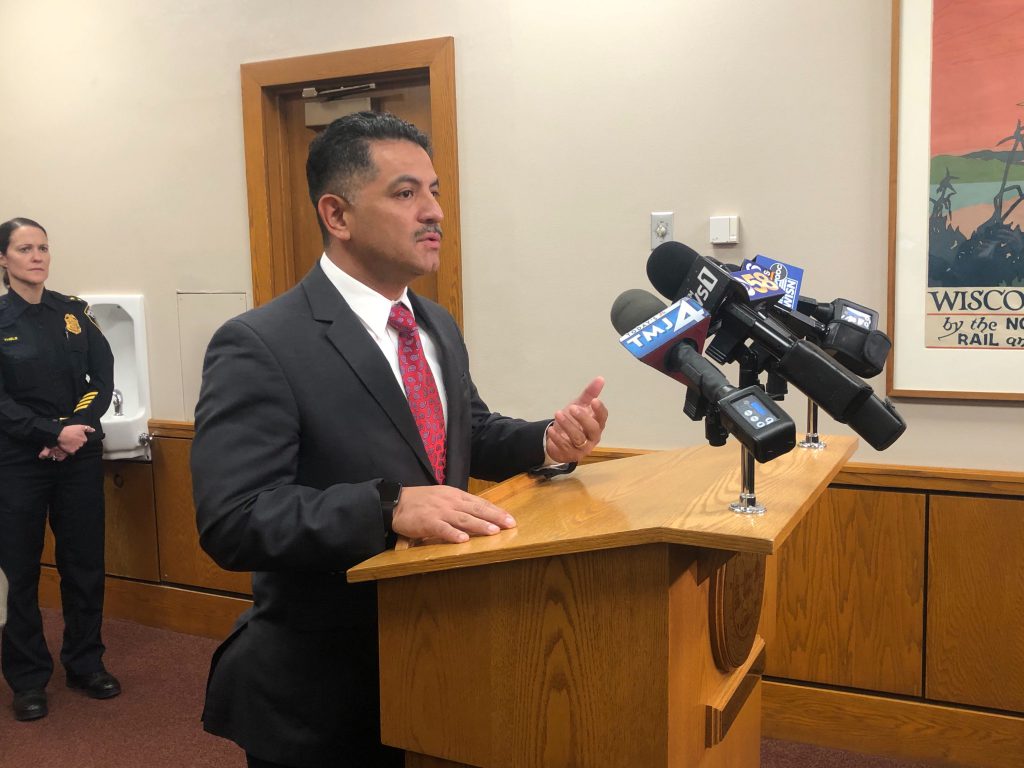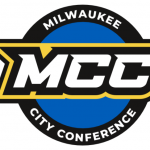Chief Morales Looks Bad in FPC Report
And FPC Chair DeVougas looks even worse. 12 takeaways on what report did and didn't find.
On April 22, the Fire and Police Commission signed a contract with investigator Mel S. Johnson to conduct a probe of a controversy that erupted in December, as to how Milwaukee Police handled an investigation of alleged crimes by Kalan Haywood, Sr., whether FPC chairman and attorney Steven M. DeVougas crossed ethical lines by representing Haywood, and who leaked a video of Haywood being questioned by police to the media.
The report, released last week, has some disturbing information and doesn’t make either DeVougas or Chief Alfonso Morales look very good. The 18-page report is thick with often confusing detail, so we’ve boiled it down to 12 takeaways:
1. The report has clear limitations. Johnson, who was assisted by Scott Schuster, notes that the two “lacked subpoena power” and had “no authority to obtain evidence through search warrants.” In short they were operating more like a private detective or say, a reporter, interviewing all involved and contrasting their statements to find the truth.
2. Police screwed up the investigation of Haywood. The allegations against him were brought to the Milwaukee Police Department (MPD) on July 23, 2019, and assigned to Sensitive Crimes Division (SCD) investigator Zachary Thoms and Assistant District Attorney Abbey DeSiato, but well before they had a chance to finish investigating him, SCD Captain John Corbett decided to question Haywood, with the help of SCD Detective Steve Wells. This was on August 13, just a few weeks after the case was assigned. Thoms and DeSiato said it would have better to wait until all their evidence was assembled. Thoms felt doing the interview this early “benefitted Haywood” and the DA’s office also objected: it “did not want the interview to happen when it did.” Moreover, Thoms was on vacation when the interview was conducted, so the most knowledgeable person about the case wasn’t included. It’s now nearly a year since the case came in and Haywood still hasn’t been charged.
4. Morales wanted Haywood to help the Milwaukee Police Foundation. It has been speculated that Morales wanted special treatment for Haywood because he was represented by DeVougas, who was delaying the FPC decision to award Morales, then the interim chief, a four-year contract as permanent chief. But the report concludes Morales did not know DeVougas was representing Haywood at that point and the more likely reason to speed up the investigation is that Haywood was being tapped to serve on the board of the Milwaukee Police Foundation, a non-profit that raises additional funding for the department. It would have been an embarrassment to have a board member who was charged with sexual assault. Corbett recalled Morales in his phone call about the case, “spoke of Haywood applying to be on the MPF board” and the result, the report says, was a “speedy response” to “interview Haywood quickly.”
5. The Police Department violated its contract with Sojourner center. Not only was the Haywood interview done very quickly, but in a unique setting, at the Sojourner center, which provides housing and protection for victims of domestic and sexual assault, but also has an agreement whereby SCD police can interview victims there. That was nice for Haywood, who was questioned in a more comfortable, less intimidating setting than a police station, but was a gross violation of the Sojurner Memorandum of Understanding with the MPD, which states that police may not interview of detain suspects at Sojourner. Carmen Pitre, executive director of Sojourner, emphasized the importance of this, the report noted, that “Victims and their children cannot be afraid to come to Sojourner for fear that they might run into suspects, perhaps in their own assaults.” It was the only time a interview of a suspect was ever done there, according to two SCD officers, and Pitre said she wasn’t asked to make an exception. Morales and others interviewed said they didn’t know about the MOU, which had been signed when Edward A. Flynn was still serving as chief, yet the report notes that law enforcement personnel involved in the case “knew it was frowned upon” to interview suspects there.
6. Police abused the trust of the alleged victim. The alleged sexual assault victim “was horrified’ by the early interview of Haywood “since she was afraid for her physical safety if Haywood” knew who his accuser was. The police promised her identity would not be revealed, but in fact her name was shared with Haywood during the interview. Worse, the interview was at Sojourner, which made the victim unhappy because “it was a building she had entered several times” to meet with police. Even worse, the video of the investigation was then leaked to the media and “she felt retraumatized and … it caused her to lose trust in MPD.”
7. Morales charges DeVougas pressured him to fire a police officer. “Morales states that his relationship with DeVougas was deteriorating throughout 2019” due to disagreement about whether any officers should be fired for their involvement in the notorious incident where Milwaukee Bucks player Sterling Brown was tased. “Morales says that DeVougas told him that he could gain reappointment [the four-year contract] if he fired an officer [James] Collins, who was involved in the Brown incident.” But Morales “did not change his position” on this. DeVougas ultimately declined to cooperate with the FPC investigation and would not agree to an interview, so his view of Morales’ story is unknown.
8. DeVougas lied about his work for Haywood. The FPC chair accompanied Haywood for his interview with police, which appeared to be an ethical violation, since the FPC oversees the work and policies of the police department. DeVougas had claimed he was accompanying Haywood as his real estate attorney but the report notes he didn’t introduce himself to the police interviewers that way, and if he had, he would have been asked to leave. The transcript of the interview, moreover, shows DeVougas at least 22 times interrupted with comments or questions “as criminal counsel might be expected to do” while making such comments as “I’m trying to be a defensive lawyer” and “it’s me being a lawyer.”
9. DeVougas violated the Code of Ethics for city employees. The City Attorney’s office ruled he had not violated any FPC rules, but that’s because “FPC rules do not address commissioner conflicts of interest or contain standards of conduct for commissioners,” the report notes. But DeVougas seems to have violated “at least two provisions of the city Code of Ethics.” One provision says no city official or employee “may use or attempt to use his or her position to influence or gain unlawful benefits, advantages or privileges for himself, herself or others,” which DeVougas was arguably doing for Haywood. And another provision says no city official or employee “may represent a person for compensation before a department or any employee thereof.” DeVougas was earning a fee as attorney for Haywood while representing him before the MPD, a city department.
11. The Journal Sentinel wouldn’t cooperate with the probe. The report dumps on the newspaper for refusing to provide the recording it had, which could have been checked forensically to determine who made the copy. “The newspaper refused … on the ground that the recording was provided by a confidential source and giving up the recording would tend to reveal the source, in alleged violation of the First Amendment.” He’s got that “alleged” right, it wouldn’t violate the First Amendment, but any publication that rats out its confidential sources will soon find it has no sources. But that sounds so much less high and mighty than the First Amendment.
12. Chief Morales has broken his promise to investigate the leaker. Back on January 30 the Police Department released a statement saying it would find out who leaked the video: “Once we became aware of a news story involving the release of a video of an out-of-custody interview, the Department immediately began to investigate whether the release came from within MPD. That investigation is ongoing.”
But the probe was dropped some three months after it was launched, the department suggested to Urban Milwaukee, after the FPC announced the investigation. But that investigation was by someone who couldn’t issue subpoenas or search warrants. By contrast a department probe would be overseen by the police chief, who can discipline anyone who doesn’t cooperate. So will Morales re-launch his search and live up to his promise of January 30th? Don’t hold your breath.
If you think stories like this are important, become a member of Urban Milwaukee and help support real, independent journalism. Plus you get some cool added benefits.
More about the Fire & Police Commission's Troubles
- City Hall: Johnson Names Former Deputy City Attorney To Fire & Police Commission - Jeramey Jannene - Nov 2nd, 2022
- City Hall: Washington, Burgos Join Fire-Police Board - Jeramey Jannene - Sep 20th, 2022
- City Hall: Kessler Resigns From Fire-Police Board - Jeramey Jannene - Sep 19th, 2022
- City Hall: Committee Backs Johnson’s FPC Nominees - Jeramey Jannene - Sep 9th, 2022
- City Hall: Mayor Acts To Create Full Fire & Police Commission - Jeramey Jannene - Jul 12th, 2022
- City Hall: Bree Spencer Named To Fire & Police Commission - Jeramey Jannene - Feb 9th, 2022
- FPC Suspends Residency Preference For Police, Fire Promotions - Jeramey Jannene - Dec 7th, 2021
- City Hall: Committee Endorses Dana World-Patterson’s Appointment To FPC - Jeramey Jannene - Dec 2nd, 2021
- City Hall: Dana World-Patterson Nominated to FPC - Jeramey Jannene - Nov 9th, 2021
- City Hall: Jeffrey Norman Named Permanent Chief of Police - Jeramey Jannene - Nov 4th, 2021
Read more about Fire & Police Commission's Troubles here
Murphy's Law
-
Top Health Care Exec Paid $25.7 Million
 Dec 16th, 2025 by Bruce Murphy
Dec 16th, 2025 by Bruce Murphy
-
Milwaukee Mayor’s Power in Decline?
 Dec 10th, 2025 by Bruce Murphy
Dec 10th, 2025 by Bruce Murphy
-
Total Cost of Foxconn Is Rising
 Dec 8th, 2025 by Bruce Murphy
Dec 8th, 2025 by Bruce Murphy























For God’s sake, both Morales and DeVougas need to be fired. One disaster after another.
What happened to ethics and integrity? Where are the charges against Haywood?!
Is anyone in charge here??
NO